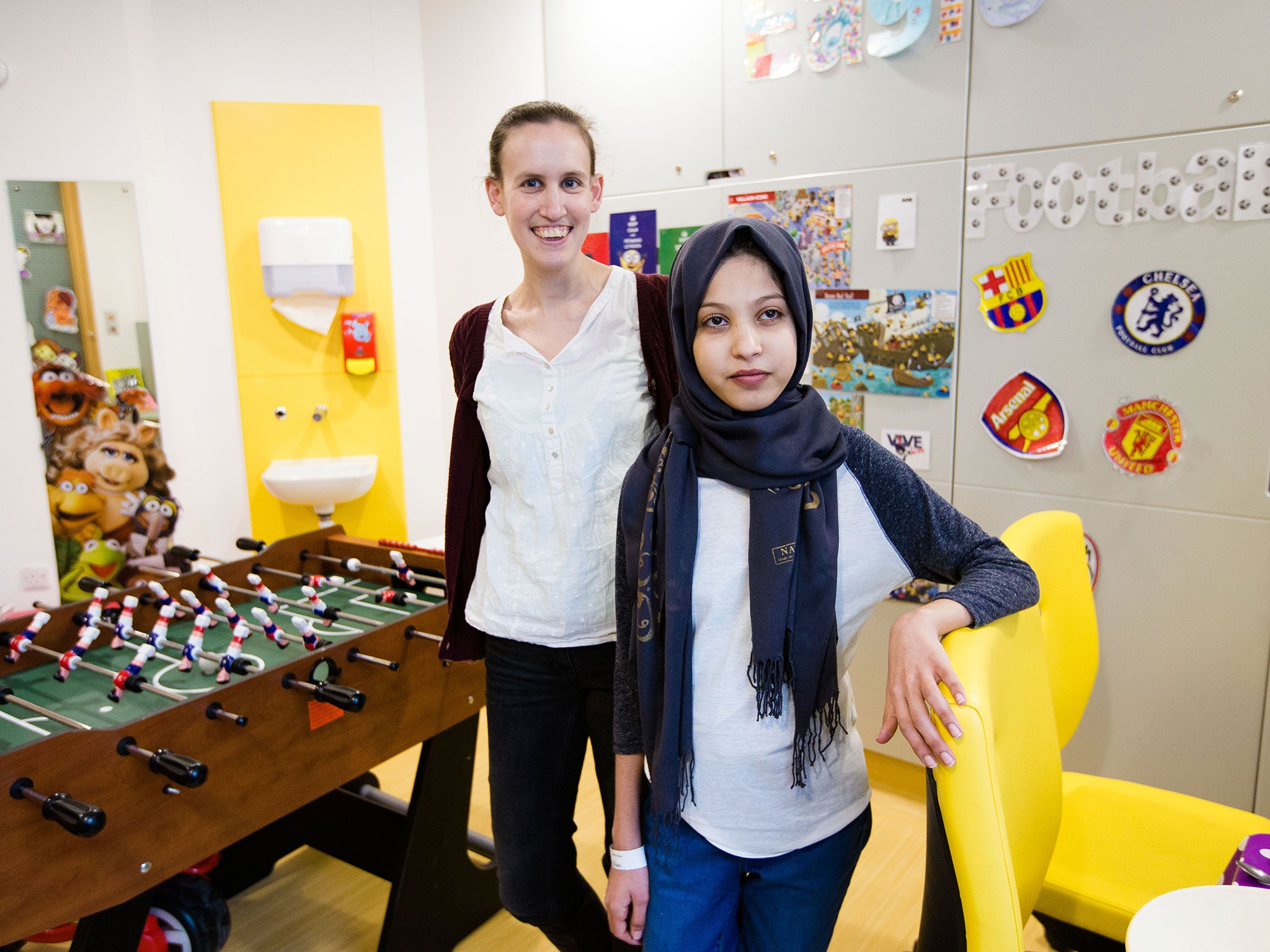How a Great Ormond Street Hospital play specialist helps kidney patients come to terms with their illness
The Independent’s Give to GOSH appeal has been following Lynsey Steele’s vital work since November

For Lynsey Steele the arrival of five teenage patients on Eagle Ward has brought fresh challenges to her role as a play specialist.
The last few months have seen her working with younger kidney patients who needed help to understand their illness and the treatment they faced. Now, she’s helping teenagers get into a routine and come to terms with the emotional turmoil of renal failure.
“Over time the patient mix on the ward changes,” she said. “When we have young kids I can be rushed off my feet as they come and find me looking for attention, while with the teenagers it’s a completely different job in terms of tailoring for their needs.”
The Independent’s Give to GOSH appeal has been following Lynsey’s vital work since November, when readers heard how she worked with nervous four-year-old Jake Morgan to prepare him for kidney transplant surgery.
Jake has since moved into nearby charity-funded patient accommodation and there are now five teenagers on Eagle Ward, but Lynsey finds the work “just as rewarding” as dealing with younger patients.
She said: “No matter what age group I work with I still get a real sense of achievement. With teenagers that might be helping them not to vomit up their medicine or getting them to school for an afternoon.”
One of the teenagers that Lynsey is currently working with is 15-year-old Londoner Rajwa Alenizi, who has renal failure and is undergoing dialysis while she waits for a kidney transplant.
She said: “I’ve been here three months and Lynsey has helped me with my medicines and getting to school. She’s my friend and tells me why it’s important to take them and helps me get a routine.”

According to Lynsey, many teenagers who are diagnosed “late” with renal failure can be “reluctant” to take their medication, which can include tablets and unpalatable laxative drinks.
“My job is to try and work with the medical staff to build up a routine, get them into school for some of the day and into a routine of taking their medicine. I need to be a friend but also make them do the things they perhaps would rather avoid.”
Getting teenage patients to accept their condition and be friends with each other can also be a challenge, she added.
“I’d love for them to all get together and be friends, but sadly it doesn’t always end up like that. Finding out as a teenager that you have renal failure can be a real shock. Teenagers have a lot more awareness about what it means for them.”
For other teenagers body image can be a pressure. Lynsey, said: “This can be a problem, especially with issues around dialysis tubes or gaining weight. We’ve had issues here in the past and we’ve had to work with the psycho-social team to get patients the support they need.”
Along with 33 other play specialists, her role is supported by the hospital’s charitable arm and play is a key part of the Christmas appeal.
Lynsey said it was “really rewarding” to get feedback after appearing in the appeal and that it was “fantastic to know that more and more people are able to understand what our job as play specialists involves”.
DONATE
NOW
Join our commenting forum
Join thought-provoking conversations, follow other Independent readers and see their replies
Comments
Bookmark popover
Removed from bookmarks